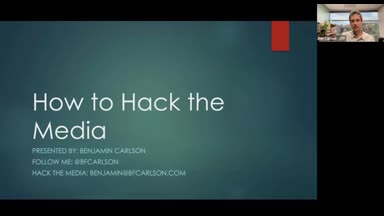Getting Featured in the Media
 by
Benjamin Carlson
by
Benjamin Carlson
Media attention is immensely valuable, but hard to get. Want to get you and your business featured in media? In this session, I'll give you a tour of the strategies and tactics you need to get noticed, featured, published. I'm a former journalist for places like The Atlantic, Rolling Stone, Esquire, and WSJ, and I've been helping people like you for years.
Recording

Thursday, November 09 2023
8:00 PM
on